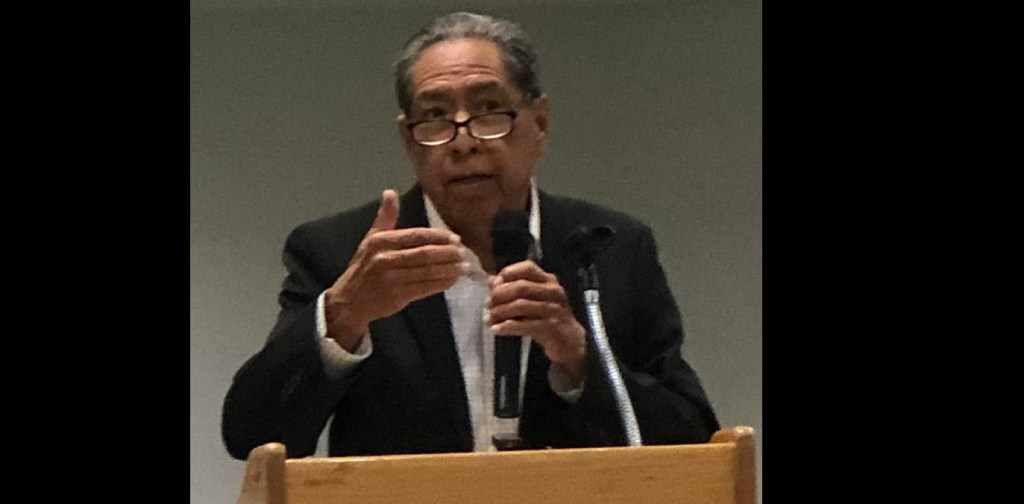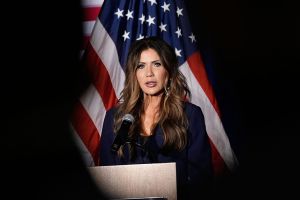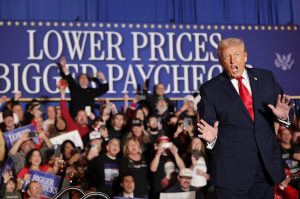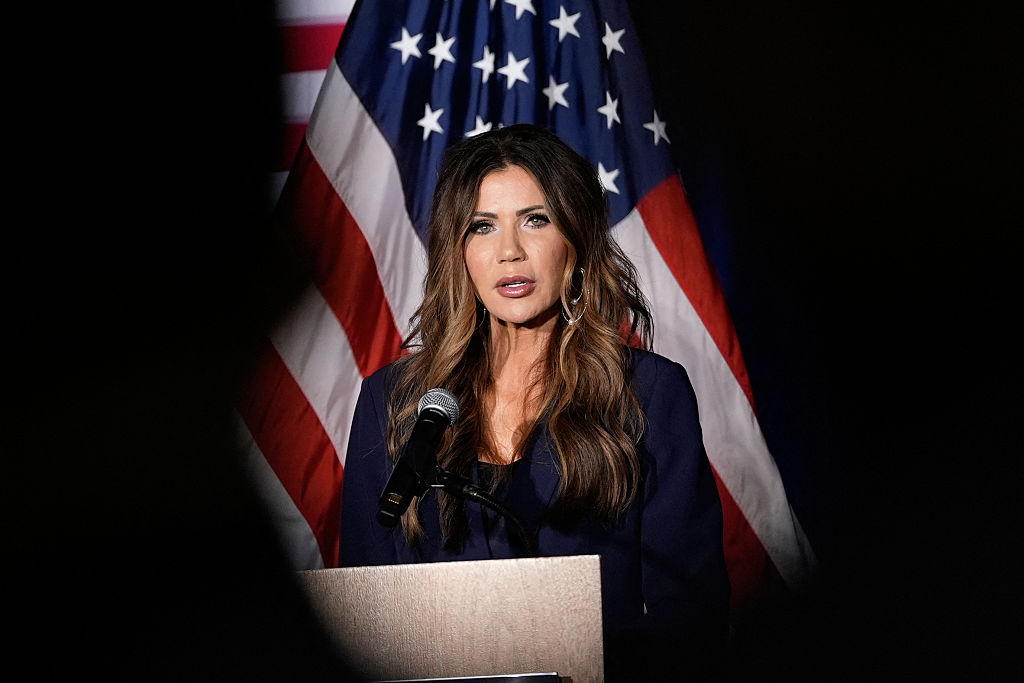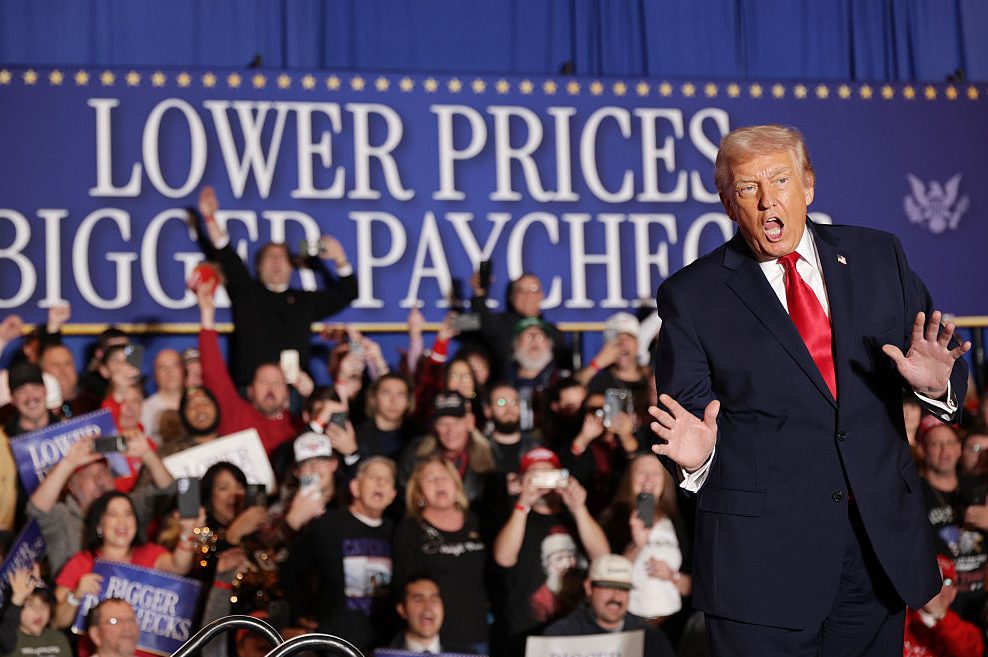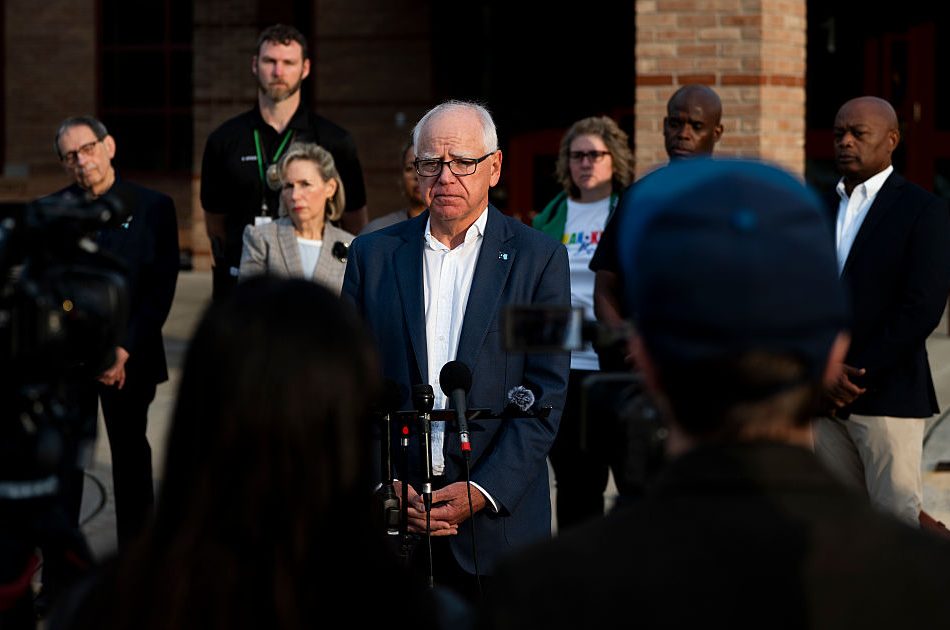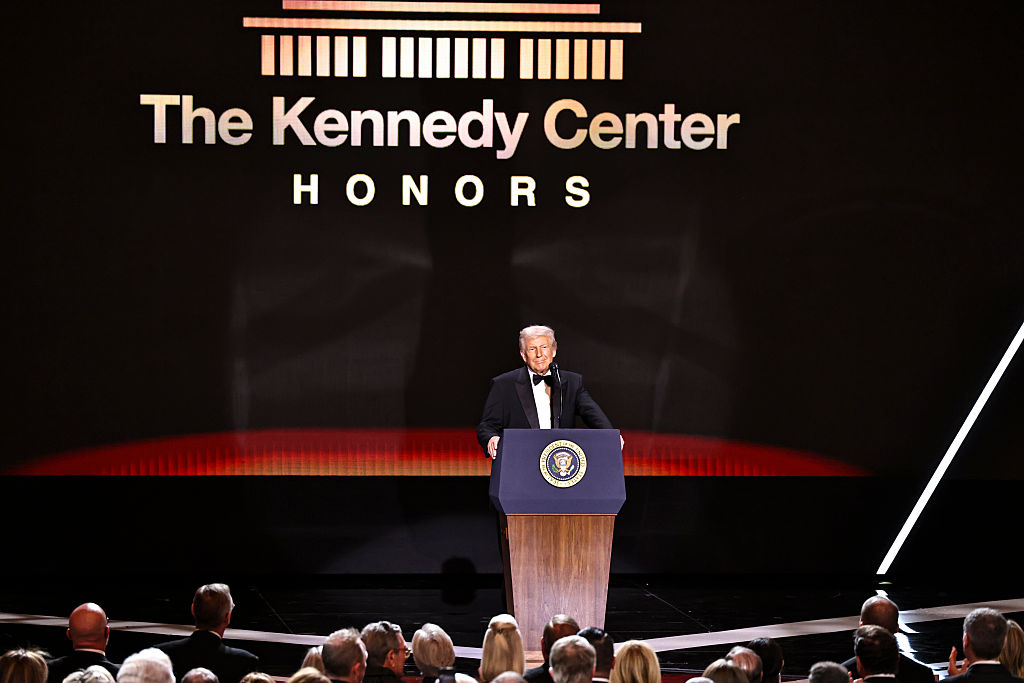How well Republicans fared this time around with Native American voters is hazy. Brookings reports that Native Americans “remained solidly Democratic in their voting preferences in 2022, though slightly lower than we observed in 2020.” The Washington Post, meanwhile, reports that support from Democrats’ “diverse voter base… slipped across the board,” and “a majority of voters who are American Indian or Alaska Native favored Republicans this year.”
Regardless, Native American voters have always been a tough demographic for Republicans to crack. Yet Pastor Robert, a full-blooded Navajo who has been ministering to his people on the largest Native American reservation in the United States (he’s based in northwest New Mexico) since 1996, says, “Republicans may have lost the red wave nationally, but according to the Republican chairman from the State of New Mexico, the GOP made gains here. We need to sit down in the war room and discuss strategy, and the First Nations need to be a part of that strategy, because if you can win over the First Nations, you can win over the rest of the communities.”
Pastor Robert estimates that Republicans account for about 30 percent of the 173,667-resident Navajo Nation reservation. He also serves as a liaison to the Native Americans as part of the Republican Party of New Mexico. His journey from substance-abusing Vietnam War veteran to conservative Christian minister is a riveting one that makes him ideally equipped to understand and change the hearts of his people. He believes we are involved in a never-ending war, and he does his battle with the mindset of a military soldier strategizing about the movements of the enemy.
Pastor Robert says it was in the aftermath of his service in Vietnam that he developed a “distaste for government.” He turned to drugs and alcohol, but while he was living in Mission, Texas, he gave his life to Christ. He went to pastor school and was eventually launched out to the Navajo Reservation to open a church. “I’ve been doing the Lord’s work ever since,” he says.
Pastor Robert recalls that when Donald Trump was running for office in 2016, “He impressed me. I said, ‘This guy doesn’t hold back on anything.’” While other Republicans had historically neglected the First Nations, Trump included them in his campaign and legislative efforts. Pastor Robert led faith-based events for Trump during his 2020 election campaign.
According to Pastor Robert, most Native Americans are traditionally oriented. Like Hispanic voters, they believe in God, they go to church, and they believe in family and freedom. The problem for the GOP, he says, “comes with reaching the Navajos and other First Nations.
“The Democrats have always been here,” says Pastor Robert. “They’ve always been influencing the tribal government.”
While Pastor Robert was attending Bible school in San Antonio, he ministered to drug addicts, drug dealers, and the youth living in densely populated public housing projects — 500 units of people all living on welfare. One of his advisors told him, “There’s no difference between public housing here in San Antonio, where there may be 500 units, and the people living in it and the way they live, and the reservation. The only difference is that yours is spread out.”
This struck a chord with Pastor Robert as he continued his ministry back on the reservation. He now views the political strategies imposed on the First Nations as a combination of fear and dependency. Native Americans, he explains, have been ingrained with generational beliefs, trauma, and government control. Pastor Robert says that much like witnesses to crime in the inner-cities, tribal people are “taught not to say anything” about lawlessness they encounter on the reservation “or the next thing you know, you become a victim.”
Evangelicals, too, are taught not to bring politics to the pulpit. They’re afraid to lose their congregations and heavy tithers, and so won’t speak the truth about open borders, violence, lawlessness, drug addiction — “not even abortion.”
Pastor Robert says the political system takes advantage of this fear to impart on his people “a dependency on the government.” Political operatives are fond of using First Nations’ religious beliefs and heritage to their advantage:
They keep the old customs flowing in the tribes. This lines up with the political parties’ beliefs. Most of them are secular in belief. So here we are as Christians, trying to win the First Nations over, our people. The First Nations are a proud people, rich in culture and beliefs. They are a resilient people. They are rich in their language. They are very colorful in their traditional dances and very beautiful in their dress. We have not, as First Nations, given up our heritage and history. We have built up the First Nations by building up their heritage and history, but First Nations have to be careful with New Age philosophy. Political powers encourage the culture, and they hook them with the same type of philosophy, the same mindset and heart, and then they throw money at it, and so you keep the whole nation in bondage. I’ve asked First Nations, “Why are you going to vote for this person?” They say, “because they’re going to give us money.” They vote because that person’s going to give us a check.
Pastor Robert says political powers are targeting young Native Americans — Generation Z — by sending them to prestigious schools of higher education where they learn the prevailing culture. When they return to the reservations, their attitude and philosophy have changed. “It’s as if they’ve been indoctrinated with whatever is flowing on the campus,” he says. And with that impartation, they become leaders within the tribal government, where they promote the initiatives they learned on university campuses.
Another way the left controls the Native population is through green energy mandates. I’ve written before about the conflict between tribes seeking sovereignty through their abundant natural resources who are at odds with the Biden administration’s goal of ending all fossil fuel usage. Where Pastor Robert lives, the coal-fired San Juan Generating Station power plant “provided electricity to millions of people across the southwestern US for nearly a half-century,” per US News. It was shuttered last month, leaving an already-poor community devastated.
For some, says Pastor Robert, the effect is even more government dependency. “Political leaders will say, ‘don’t worry, we’ll give you a check until you find another job,’ and by then, they don’t want to work anymore.”
For others, he says, it’s the destruction of the family. As men are stripped of their jobs locally, they often have to travel to other states where their labor union has open positions. Some Navajo men go as far away as Michigan for as long as a year to make money to support their families.
“This messes up the family,” says Pastor Robert. “It splits the family and pulls the man out of the church. With husbands leaving, it is a deceptive plan — taking the father out of the household. The structure of the family becomes unbalanced, and we’re left with a whole Navajo Nation without fathers. These are good, providing fathers. The finances were there to pay the bills. All of a sudden, this deceptive philosophy has pulled the father out of the household. Out of state six months to a year. That really destroys the family unit. I just call it a destructive strategy — and all that for ‘the environment.’”
Pastor Robert returns to his theory that the historically “beaten down and traumatized” Native Americans “just take it.”
Frank Trambley, first vice chairman of the Republican Party of New Mexico, says the Republican Party has been trying to make inroads in the Native American community “for probably forever.” Trambley says Native Americans want the same things everyone wants — a high-quality education for their children and a prosperous future.
“We’re not changing what our message is. It’s just about trying to get our message into these populations better,” Trambley says. “A lot of people were surprised when Donald Trump was elected in 2016, but it wasn’t surprising when you saw how much people were really hurting out there. And it’s the same thing with the Native American population. People are surprised they’re actually voting a different way, but when you dig a little bit deeper, it’s not surprising at all.”
Pastor Robert says Republicans running for state politics aren’t typically brought to the reservation, but he’s been changing that. In December 2021, the Navajos hosted and organized a Republican gubernatorial forum for the first time at San Juan College in Farmington. From then on, he says, it has been easier to bring candidates in for rallies, meet-and-greets, and so forth. He calls that first event “a turnaround.” On October 29 of this year, 400 Navajos attended a rally on the reservation for Republican gubernatorial candidate Mark Ronchetti.
The radio is still big on the reservation, and Pastor Robert thinks playing positive, conservative messages over the radio in English and in Navajo could be very effective, as the radio reaches the whole reservation, including Utah, New Mexico, and Arizona. He also wants to facilitate more door knocking, voter registration drives, and to raise more money for radio ads.
The strategy Pastor Robert views as being the most effective, though, is a community center for “the largest Native Americans population in the United States — the Navajo Nation — that caters to the needs of the people.” He visited such a place in McAllan, Texas — the community that elected Mayra Flores during her special election — and “saw it in action.” He says if his community offers a welcoming place that promotes conservative principles, enables people to access Bible studies — “When they find Christ, that’s all they need, my sister” — and teaches them about the evils of socialism, how it begins and takes root, he can begin to “transform the way they think.
“It’s going to have to be done with the Holy Spirit to change their minds and hearts,” Pastor Robert concludes. “All I need is the backup of the Republican Party.”



